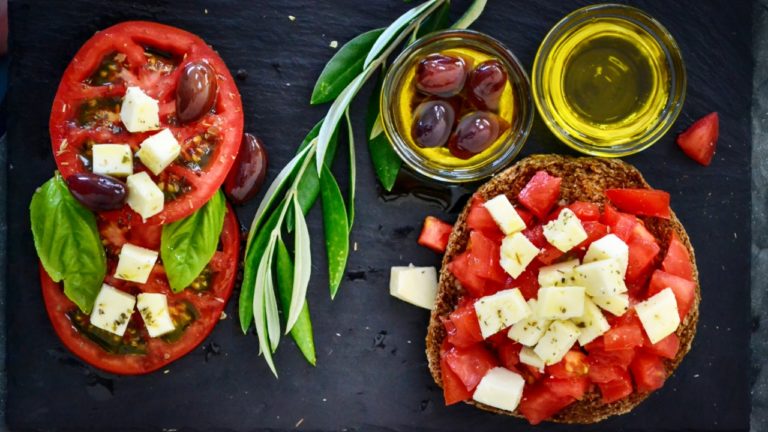Healthy Ramadan: Essential Dietary Guidelines for Fasting

During Ramadan, it’s essential to maintain a balanced and nutritious diet to ensure you stay healthy while fasting. Here’s a sample diet plan that you can follow during Ramadan:
Pre-dawn (Suhoor):
- Start your day with a wholesome meal to sustain you throughout the day.
- Include complex carbohydrates such as whole grains (oats, brown rice, whole wheat bread) for sustained energy release.
- Add lean protein sources like eggs, yogurt, or lean meats to keep you feeling full for longer.
- Incorporate healthy fats such as nuts, seeds, avocados, or olive oil for satiety.
- Hydrate well with plenty of water to prevent dehydration during the fasting hours.
- Don’t forget to include fruits and vegetables for vitamins, minerals, and fiber.
Iftar (Breaking the fast):
- Break your fast with dates and water to replenish your energy and hydrate your body.
- Start with a light soup or salad to ease your stomach and provide hydration.
- Include a balanced meal with a variety of foods including carbohydrates, proteins, healthy fats, and fiber.
- Opt for grilled, baked, or steamed foods instead of fried items to keep the meal healthier.
- Include a serving of lean protein such as grilled chicken, fish, legumes, or tofu.
- Incorporate complex carbohydrates like whole grains, quinoa, or sweet potatoes for sustained energy.
- Include a generous portion of vegetables or a salad for fiber, vitamins, and minerals.
- Hydrate yourself well with water, herbal teas, or natural fruit juices.
Evening Snack:
- If you feel hungry between iftar and suhoor, opt for light and nutritious snacks.
- Choose snacks like nuts, dried fruits, yogurt, or whole grain crackers for sustained energy.
- Avoid sugary or processed snacks as they can lead to energy crashes.
Hydration:
- Drink plenty of water between iftar and suhoor to stay hydrated throughout the night.
- Avoid caffeinated and sugary drinks as they can lead to dehydration.
- Herbal teas, infused water, and natural fruit juices are good alternatives.
General Tips:
- Practice moderation in your food intake to avoid overeating during iftar and suhoor.
- Avoid excessive consumption of sugary and fried foods as they can lead to energy crashes and weight gain.
- Incorporate physical activity into your daily routine, but avoid strenuous exercise during fasting hours.
- Listen to your body and adjust your meal timings and choices according to your personal needs and preferences.
Remember, Ramadan is a time for spiritual reflection and self-discipline, so focus on nourishing your body with wholesome foods to maintain your health and well-being during this holy month.
During Ramadan, dietary guidelines are essential to help maintain good health and well-being while fasting. Here are some dietary guidelines to follow during Ramadan:
- Balanced Meals: Plan balanced meals that include a variety of foods from all food groups, including fruits, vegetables, whole grains, lean proteins, and healthy fats. This ensures you get all the essential nutrients your body needs.
- Suhoor: Eat a wholesome pre-dawn meal (suhoor) before beginning the fast. Include foods that are rich in complex carbohydrates, such as whole grains (oats, barley, brown rice), protein sources (eggs, yogurt, nuts), and healthy fats (avocado, olive oil). Don’t forget to drink plenty of water to stay hydrated throughout the day.
- Avoid Processed Foods: Limit the consumption of processed and high-sugar foods, such as sugary drinks, sweets, and desserts. These foods can cause energy spikes and crashes and may lead to weight gain.
- Iftar: Break your fast (iftar) with a few dates and water to replenish your energy levels. Start with a light soup or salad to ease your stomach before moving on to the main meal. Include a balanced meal with a mix of carbohydrates, proteins, and healthy fats. Choose grilled, baked, or steamed foods over fried options for healthier choices.
- Portion Control: Practice portion control during iftar to avoid overeating. Start with small portions and listen to your body’s hunger cues. Eat slowly and mindfully to prevent indigestion and discomfort.
- Hydration: Stay hydrated by drinking plenty of water between iftar and suhoor. Avoid caffeinated and sugary beverages, as they can lead to dehydration. Herbal teas, infused water, and natural fruit juices are better options for hydration.
- Nutrient-Rich Snacks: If you feel hungry between iftar and suhoor, choose nutrient-rich snacks such as nuts, dried fruits, yogurt, or whole grain crackers. These snacks provide energy and essential nutrients without causing spikes in blood sugar levels.
- Physical Activity: Engage in light to moderate physical activity during non-fasting hours to maintain your fitness levels. Avoid strenuous exercise during fasting hours, especially in hot weather, to prevent dehydration and exhaustion.
- Social Gatherings: Be mindful of portion sizes and food choices when attending social gatherings or iftar parties. Focus on enjoying the company of friends and family rather than overindulging in food.
- Listen to Your Body: Pay attention to how your body responds to fasting and adjust your dietary habits accordingly. If you experience any health concerns or discomfort, consult a healthcare professional for guidance.
By following these dietary guidelines, you can ensure a healthy and balanced approach to eating during Ramadan while still observing the fast.
Version 1 (To be followed on most days)
Meal 1 : 2 dates + Small serving fruit (1-2 banana, 1 apple, 1 mango or any fruit of your choice. Ideally, keep changing it up) + 2-3 large glasses of water + Bowl of egg whites (3-4 egg white) or 100g Chicken/Fish or 100g Paneer TEA OR COFFEE with 1 spoon sugar also allowed!
Meal 2 & 3 – Protein serving (Bowl of chicken/Paneer/Egg White) + Complex carbohydrate serving (Bowl of Rice/Upma OR 2 wheat/ragi/jowar/bajra rotis) + Vegetable Serving Just make sure there is a 1 hour 30 minute gap between 2 meals.
Meal 4 : Only protein (Kababs) + (Optional) Nuts like badaam/cashew
VERSION 2 : On days when you will go outside for dinner
Meal 1 : 1 date + Small serving fruit + 2-3 glasses of water
Meal 2 : Cheat meal (eat whatever you want) + 4-5 glasses of water
Meal 3 : (ONLY IF HUNGRY) White meat (Grilled or fried in a non-stick with MINIMUM Oil) + Vegetables
Meal 4 : (ONLY IF HUNGRY) Small portion of slow digesting protein (Curd, paneer, red meat) + vegetables.



